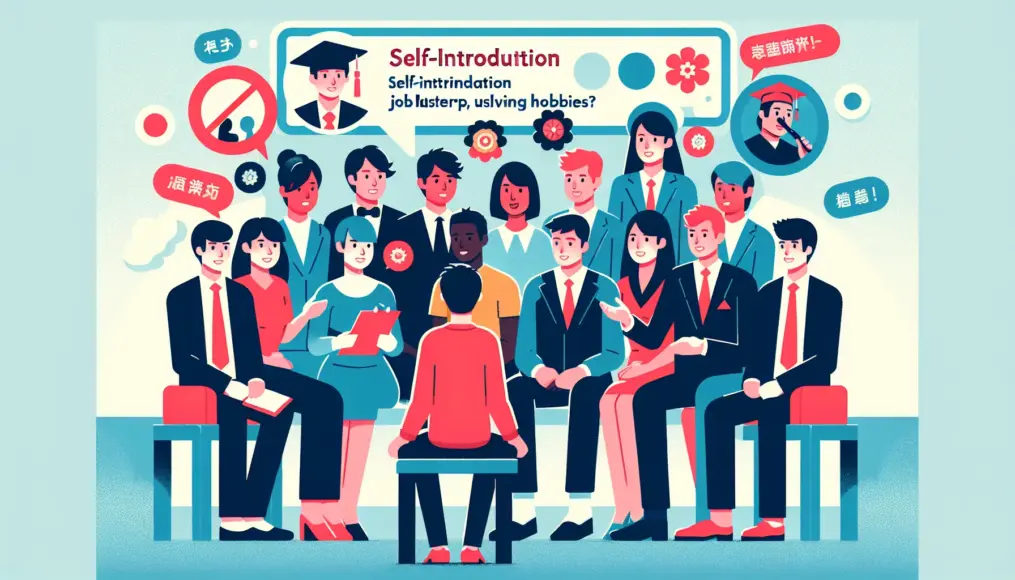When it comes to succeeding in a job interview, one of the key elements is effectively responding to the questions posed by the interviewer. Knowing what types of questions are commonly asked can really help you prepare and set the right mindset.
Moreover, asking your own questions can leave a positive impression on the interviewer. Let’s dive into some strategies for questioning in a job interview.
- Common Interview Questions and What They Really Mean
- Crafting Questions to Make a Great Impression
- Effective Questions to Stand Out During Your Turn to Ask
Common Interview Questions and Their Intentions in Job Interviews
Job interviews often feature a variety of questions. These inquiries are designed to uncover what interviewers want to know about candidates. Therefore, how you respond to these questions is crucial.
What Interviewers Want to Know
Interviewers are interested not only in a candidate’s experience and skills but also in their personality and values. Common questions during interviews typically include self-introductions and discussions about previous job responsibilities. Through these questions, interviewers assess whether the candidate would be a good fit for the company culture.
When answering questions, it’s essential to convey your experiences in a concrete manner. For instance, sharing success stories or challenges faced in your previous job can be effective. Additionally, understanding the intent behind the questions and preparing appropriate responses is vital. For tips on tackling commonly asked interview questions, check out How to Tackle Common Job Interview Questions! Your First Step to Success.
- Interviewers want to know about a candidate’s experience, skills, personality, and values.
- Common questions often involve self-introductions and previous job duties.
- Clearly sharing your experiences can demonstrate your fit within the company culture.
How to Respond to Questions
How you respond to questions can significantly impact the outcome of your interview. First and foremost, it’s important to grasp the intent behind each question. Once you have that understanding, organize your experiences and thoughts to communicate them clearly.
Keep your answers concise and choose words that are easy to understand. Incorporating specific anecdotes can make your responses more memorable. It’s also beneficial to observe the interviewer’s reactions and adjust your conversation as needed.
- Understanding the intent of questions is crucial.
- Organizing your experiences and thoughts for clarity is key.
- Including specific anecdotes helps leave a lasting impression.
How to Craft Impressive Questions for Your Interview
Asking questions during an interview is crucial. It’s a great opportunity to demonstrate your interest and enthusiasm to the interviewer. In this article, we’ll explore how to create particularly effective questions.
Leverage Your Self-Introduction
When introducing yourself, it’s important to highlight your strengths and experiences. Building on this, think about questions that relate to your self-introduction. For instance, you could ask about the company’s role in relation to a successful project or initiative you’ve been part of in the past.
By basing your questions on specific examples, you can convey your passion to the interviewer. Additionally, asking questions that relate to what you’ve shared in your introduction creates a natural flow, leaving a positive impression.
- Communicate your strengths through your self-introduction
- Formulate questions based on past successes
- Showcase your enthusiasm in a natural way
Reflect Company Research in Your Questions
Next, it’s essential to prepare questions after thoroughly researching the company. By understanding the company’s vision and recent projects, you can formulate specific inquiries. For example, you might ask, “What are your thoughts on the future of your 〇〇 project?”
Asking such questions demonstrates your interest in the company and highlights how you could contribute. Questions grounded in company research are a powerful tool for making a solid impression on the interviewer. Moreover, by referring to what to expect in final job interviews! Preparation tips for success, you can gain a deeper understanding of the importance of asking follow-up questions.
- Understand the company’s vision and projects
- Show your interest with specific questions
- Highlight how you can contribute
Stand Out with Thoughtful Questions: Effective Examples for Interviews
Asking questions during an interview is crucial for making a positive impression. It’s your opportunity to demonstrate your interest and enthusiasm for the position. In this article, we’ll explore the importance of asking questions and provide examples that will impress your interviewer.
The Importance of Asking Questions
Reverse questions aren’t just a formality; they’re a way to convey how invested you are in the company. They also give you a chance to assess whether the organization is a good fit for you.
By preparing insightful questions, you can leave a lasting impression on your interviewer. Don’t hesitate to ask about the work environment that aligns with your career goals and values. Additionally, referring to resources like 成功を掴む!質問攻略法と意外なポイント can help you enhance your question preparation.
- Reverse questions show your interest and enthusiasm
- An opportunity to determine if the workplace suits you
- Thoughtful questions leave a positive impression on the interviewer
Examples of Impressive Questions to Ask
So, what types of questions should you consider asking? One effective approach is to inquire about the company culture or team dynamics. For instance, asking, “What’s the vibe like within your team?” is a great way to express your interest.
You can also ask about ongoing projects. Posing the question, “What aspects of current projects do you find most rewarding?” can help you gain insight into the specific work involved. Such inquiries showcase your genuine interest in the role and the organization.
- Ask about company culture and team dynamics
- Inquire about the rewards of ongoing projects to learn about specific tasks
- Showcase your genuine interest through thoughtful questions
How to Leave a Lasting Impression with Your Post-Interview Follow-Up
Following up after an interview is crucial. Not only does it help reinforce a positive impression with the interviewer, but it also allows you to express your enthusiasm for the position. In this article, we’ll explore effective strategies for your follow-up.
Crafting a Polite Follow-Up Email
A follow-up email is a courteous message you send after the interview. It’s important to start by expressing your gratitude. A simple opening like “Thank you for the opportunity to interview” sets the right tone.
Next, referencing specific topics discussed during the interview can help strengthen your impression. For example, mentioning a project you talked about or the company’s vision can make your message more memorable.
Finally, reiterate your appreciation and express your excitement for future communications. A heartfelt follow-up email is an essential tool for enhancing your image.
- Express your gratitude
- Reference specific topics from the interview
- Use a heartfelt message to deepen your impression
Reflecting and Identifying Areas for Improvement After the Interview
Once the interview is over, take the time to reflect on your performance. Think back on how the interview went and evaluate your responses to questions, identifying what went well and what could be improved.
It’s particularly important to analyze your answers to the interview questions and the content of any questions you asked in return. Finding areas for improvement will help you prepare for your next interview.
Additionally, through self-reflection, you can reassess your strengths and weaknesses. This will lay the groundwork for your preparation for future interviews. Finally, consider the significance of asking questions during the interview. For more insights, check out Tips for Success with Reverse Questions in Temp Interviews.
- Reflect on your performance after the interview
- Organize your strengths and areas for improvement
- Develop strategies for your next interview
Conclusion
To succeed in a job interview, it’s crucial to prepare the right questions. By incorporating your self-introduction and reflecting your research about the company in your inquiries, you can leave a positive impression on the interviewer. Additionally, following up after the interview and reflecting on your performance will help you prepare for the next steps.
- Questions during the interview are a chance to showcase your interests and enthusiasm.
- Use reverse questions to demonstrate your interest in the company.
- Follow-up emails and reflections can help solidify a positive impression.
Job hunting can be challenging, but with gradual preparation, you can boost your confidence. We wish you the best of luck in your job search, and we’d love to hear your thoughts in the comments!



Comment